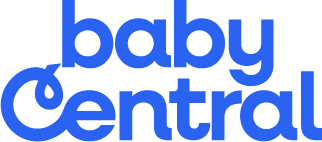When should I start introducing solids?
Every baby and family is different but most paediatricians and child health nurses agree that it's safe to start introducing solids around 6 months of age. Studies show that at around the age of 6 months, a baby's need for energy and nutrients starts to exceed what is provided by breast milk or formula, and the introduction of solid foods are necessary to meet those increased needs.
Believe it or not babies of this age start to show signs of food readiness with cues. The signs that your baby is ready to start solids include sitting with good head control, watching others eat, opening their mouth when food is offered, and reaching out to grab food and objects from others.
What do I start with?
The Royal Children's Hospital of Victoria suggest to start with infant cereals such as rice ceral with added iron, vegetables, fruit, meat, chicken, fish, cooked tofu and legumes. It's recommend that you start introducing 1 food at a time so your baby can learn about the flavour and texture of each new food. Click here for more information on introducing allergens such as eggs etc.
How often should I feed my baby?
It is recommended that babies start receiving solid food initially 2-3 times a day from 6-8 months. Increase to 3-4 times daily between 9-11 months and 12-24 months with additional nutritious snacks offered. Start by offering a teaspoon of food between milk feeds. Increase the number of meals offered each day once baby eats 2–3 tablespoons at a time.
What texture should the food be?
Start with pureed food and move to more chunky textures during the 6-12 month period. The Beaba Babycook can help you prepare food for your baby and cater for all developmental stages of feeding from the finest puree to steamed whole vegetables. The Babycook steam cooks meat, fish and vegetables in 15 mins and preserves all the vitamins and nutrients in the process and then you simply blend in the same bowl - GENIUS!
Some families choose to try the Baby Led Weaning (BLW) approach. If you'd like to try BLW, offer your baby a range of nutritious age appropriate finger foods. Many parents choose to do this at shared meal times as babies love to copy those at the table around them. Baby led weaning can be messy, as food is placed in front of baby but there are plenty of suction tableware to assist!
A great tool to have in your kit is the Fresh Food Feeder with this you can start introducing your little ones to strawberries, bananas, and other whole, fresh foods safely. Simply place the food in the large silicone pouch and let your little one do the rest! Easy to clean (really!) and you can add frozen fruit which will help soothe teething tots!
It's common for babies to refuse new foods when first offered, or to delighfully spit it straight back out so arm yourself with an array of bibs and an easy to clean highchair! Follow their cues - increase the variety and amount of foods when they are ready and be mindful that babies often turns their head to the side to tell you they don't want anymore.
Use utensils made for tiny hands
When baby is ready to start feeding themselves invest in cutlery made especially for their age and development.
Pack your MVP tool for eating out!
Dining out with baby is simple with Skip Hop's Easy Grab and Go Range. A whole range of different options to suit you and your babies needs and for those times where heating isn't an option the Food Pouches will be your best friend. Organic, balanced, delicious and convenient for feeding on the go!
Snack safely
Pack kid friendly snacks in spill proof snack cups. These have easy-access opening that tot-sized hands can reach into, but too tricky for littles to open up all the way and spill food on the floor. Especially handy in the car!
Starting solids is an exciting , messy time so enjoy the milestones and the mess!



















Starting Solids Survival Guide